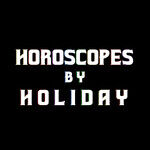Physicians usually snip the umbilical cord 15 to 20 seconds after birth, but new recommendations from the American College of Obstetricians and Gynecologists suggest waiting at least 30 to 60 seconds for healthy newborns, while some doctors have advised on waiting up to five minutes. The reason: More time for the infant to receive oxygen-rich placental blood to boost its first breaths. The practice might also lower risk of cognitive development problems. The debate is ongoing.
Countdown to Christmas
It's well documented that heart attack deaths spike during the holiday season, but researchers have struggled to differentiate how much might be driven by holiday stress and how much by cold weather. A New Zealand study could help clarify.
Scientists looked at nearly 200,000 cardiac deaths between 1988 and 2003 in Australia and New Zealand, where the end-of-year holiday season is also the warmest time of the year. They found that sudden cardiac death spiked at Christmastime despite the higher temperatures and that victims were younger than at other times of year.
Body of Knowledge
The hydrochloric acid in your stomach, which is so good at helping you digest that pepperoni pizza from last night, can also dissolve razor blades. Stick with the pizza.
Number Cruncher
A single medium-sized potato contains 66 calories, 9 from fat. It has 1 gram of total fat (or 1 percent) of the recommended total fat intake for a 2,000-calorie daily diet.
It also contains 2 milligrams of cholesterol; 182 mg of sodium; 12.9 grams of total carbohydrates and 1.8 g of protein.
Counts
10: Maximum amount of lead, in parts per million, in cosmetic products, as proposed by new FDA draft guidelines
Source: FDA
Stories for the Waiting Room
Why do your fingertips get wrinkly when spend too much time in the tub or washing dishes? The reason has to do with what happens inside your digits as water seeps into your skin. Finger nerves begin firing differently, setting off a reaction that causes blood vessels to constrict and pull down the upper layers of the skin. Voila! Prune fingers.
The phenomenon has an evolutionary benefit: It allows you to better grip objects in wet conditions.
Doc Talk
Postprandial somnolence: a normal state of drowsiness or lassitude following a meal, i.e. the proverbial post-Thanksgiving dinner sluggishness. It's triggered by activation of the parasympathetic nervous system in response to a massive amount of food in the gastrointestinal tract and hormonal/neurochemical changes that induce sleepiness. Amino acids like tryptophan, found in turkey but even more abundant in fish and cheese, are popularly touted as triggers, but the cause is likely the amount of food consumed than the type. Some people refer to postprandial somnolence as a "food coma."
Phobia of the Week
Agyrophobia: fear of crossing roads
Never Say Diet
The Major League Eating record for pickled beef tongue is three pounds, three ounces in 12 minutes, held by Dominic Cardo, a feat that set observers' tongues a-waggin'. The cows, of course, were speechless.
Observation
"According to most studies, people's number one fear is public speaking. Number two is death. Death is number two. Does that sound right? This means to the average person, if you go to a funeral, you're better off in the casket than doing the eulogy." —Comedian Jerry Seinfeld
Medical history
This week in 1944, American obstetrician and gynecologist John Rock, with Miriam F. Menkin, fertilized the first human egg in a test tube. The embryo was not returned to the womb. Rock is best known as a developer of the birth control pill.
Sum Body
Screening tests are a good thing. Blood pressure checks, mammograms, Pap smears and colonoscopies are all linked to reduction or prevention of disease. But not every test is necessary or wise, particularly when it might lead to unnecessary procedures.
Here are three cardiovascular tests the U.S. Preventive Services Task Force doesn't recommend for healthy people:
—Electrocardiogram or EKG. There's little evidence to support its predictive value for heart attacked or other cardiovascular problems, even in people at higher risk.
—Carotid artery screening uses ultrasound imaging to detect narrowing of the arteries in the neck. It's touted as a way to predict stroke risk in asymptomatic people, but there's little evidence and the test often leads to carotid angioplasty, a surgical procedure to widen the artery.
—Abdominal aortic aneurysms occur when the wall of the aorta — the body's main artery — weakens, bulges and ruptures, often leading to fatal bleeding. Aneurysms are more common in older men and in smokers. The USPSTF recommends older women who have never smoked skip the test; benefits to female smokers are unclear.
Med School
Q: What is the best day of the week to have non-emergency surgery?
A: Monday, according to a 2013 study published in the British Medical Journal. Risk of death is lowest on Monday and rises with each subsequent day. People who have surgery on Friday are 44 percent more likely to die than those who have it on Monday (1.44 percent risk compared to 1 percent). Weekends are worse: 1.82 percent risk of death.
Last Words
"We've reached one of our phase lines after the fire fight and it smells bad, meaning it's a little bit suspicious. Could be an amb..." —Vietnam War correspondent Bernard Fall (1926-1967). While covering U.S. Marines on a patrol, Fall stepped on a landmine. His last words were captured by a tape recorder he was using at the time.
To find out more about Scott LaFee and read features by other Creators Syndicate writers and cartoonists, visit the Creators Syndicate website at www.creators.com.






View Comments